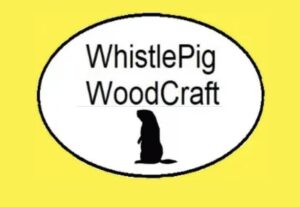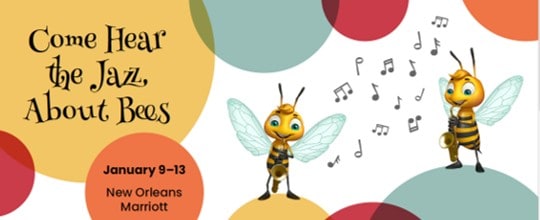
Everything on one page!
- President’s Message, February 2024
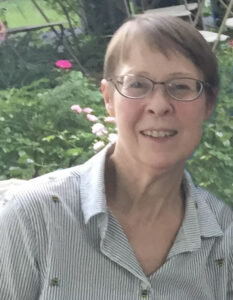
MSBA President Mary Laura Fitzgerald
Hello Maryland Beekeepers!
My name is Mary Laura Fitzgerald, and I am the incoming President of MSBA. It is an honor to serve you this season
I have been a beekeeper on the Eastern Shore of Maryland for eight years, with two years of commercial beekeeping experience, and I am currently studying for the EAS Master Beekeeper exam. I’m looking forward to working with you all!
2024 will be an exciting year for Maryland beekeepers. We will be hosting the Eastern Apiculture Society Conference in Ellicott City from August 5th through 9th. This conference brings together beekeepers from up and down the east coast of the US and Canada. It’s a fantastic educational opportunity with respected speakers on topics from research to practical beekeeping information.
EAS is a chance to talk to vendors in person and find apiary products. It’s also a fantastic opportunity to network with other beekeepers and solve problems you might have in your own apiary. I walk away every year, with a head full of new information and ideas.
The Maryland State Beekeepers Association is also hard at work to provide more excellent educational opportunities. We recently held our well received annual Making Nucs and Splits class, and have more exciting offerings coming up in the future, including a workshop on Queen Rearing and Development and (hopefully) a harvest workshop that has been postponed due to the pandemic and personnel changes at UMD.
But there are also challenges on the horizon! In Baltimore, a court case is in progress that could prevent some beekeepers from keeping bees in the city. A growing concern for native bees has resulted in a proposed moratorium on keeping honey bees within state parks.
As beekeepers, we must balance our beekeeping with the needs of native bees, and the communities around us. Which means that we need the tools to be stewards for our bees. Sam Droege, who leads the USGS Native Bee Inventory and Monitoring Lab, will give us some insight and facts on native bees and the impacts of European honey bees at the EAS Conference this summer.
MSBA and our local clubs will continue to provide opportunities to enhance our beekeeping skills so that we can be responsible beekeepers in our communities, and good honey bee ambassadors. As educated beekeepers, we have the opportunity to educate our communities, and keep our bees in a positive light. Join us for our fun and informative educational offerings, and you can jump right in this Saturday, with our great lineup at the state meeting in Catonsville.
[Return to February 2024 BeeLine newsletter]
Notes from the Apiary Inspector
- Notes from the Apiary Inspector
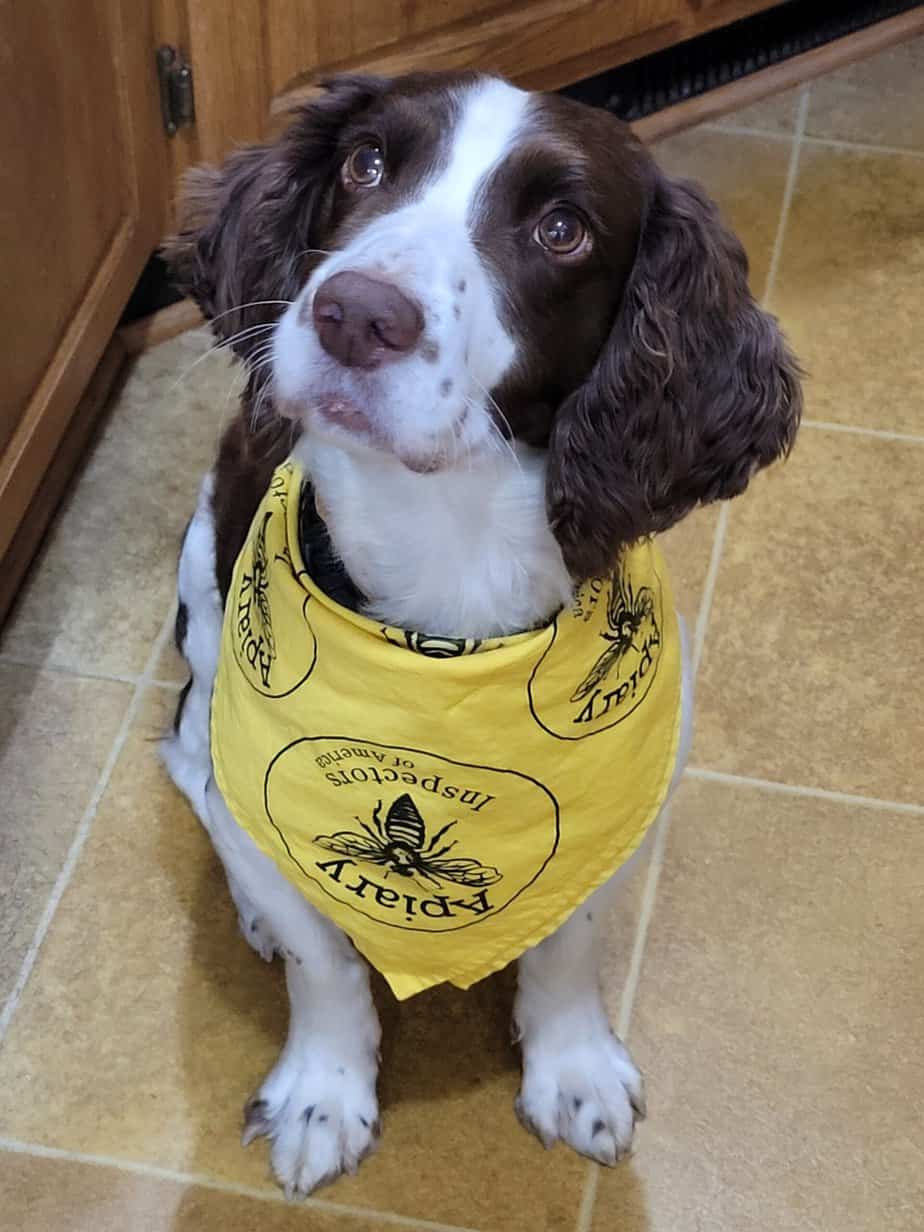
AFB Dog Tukka 2023 Statistics 2022 Statistics Registered beekeepers: 2,338 vs. 2,353 Apiaries: 2,957 vs. 3,036 Colonies: 18,738 vs. 19,575 - The Maryland Department of Agriculture sent out the first registration letter to Maryland beekeepers in December, to over 4,000 recipients.
- Please send in or email me your signed registration if you have not already done so. The option of scanning or electronic return seems to be popular and convenient!
- A second mailing will go out on Wednesday 2/14 (yes, Valentine's Day). The second notice is sent to those who did not return the firstt registration: We make our Inspectors lists by the middle of March, reflecting the locations where we know there are registrations, so please get your registration forms in ASAP.
- Please send in or scan me your updated form. cybil.preston@maryland.gov
- We have had some stretches of harsh weather: I am inspecting more dead outs than last year. The losses that I am seeing are dead clusters with dead mites, varroa frass in the cells, clusters on brood with pierced cappings, dead pupae. This is all evidence of high varroa and virus pressure. Finding smallish clusters, or no bees left behind, leads me to think there was heavy die off on cleansing flights.
- Please remember that, if you are purchasing nucleus colonies from out of state, you will need to have them inspected prior to them entering Maryland. Also, for nuc suppliers: please contact me to get on the inspection request list. If nucs are made in Maryland and sold to an out-of-state beekeeper, they must be inspected before movement across state lines. The beekeeper selling the nucleus colonies is responsible for finding out from the buyer where it is going. Every state has the same laws for movement of bees into the state. Please contact me if you need to schedule a spring inspection.
- We will be participating in the National Honeybee Survey again this year. I am looking for volunteers who would like to participate. To qualify you must have 8 colonies in your apiary.
- K-9 inspections: Mack and Tukka were able to inspect the hives leaving for California. 2,500 colonies were inspected in November and December!
- I was able to attend the Apiary Inspectors of America Conference in New Orleans, and brought home good info and knowledge on Yellow legged hornet monitoring and other issues that other state inspection programs are experiencing.
- Senate Bill 278 is now before the legislature. The bill does not alter any of the current bee laws/regulations in any way. The bill adds a new monetary penalty for noncompliance with the current law, with a thirty day period to comply before any penalty is assessed.
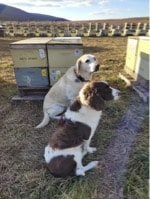
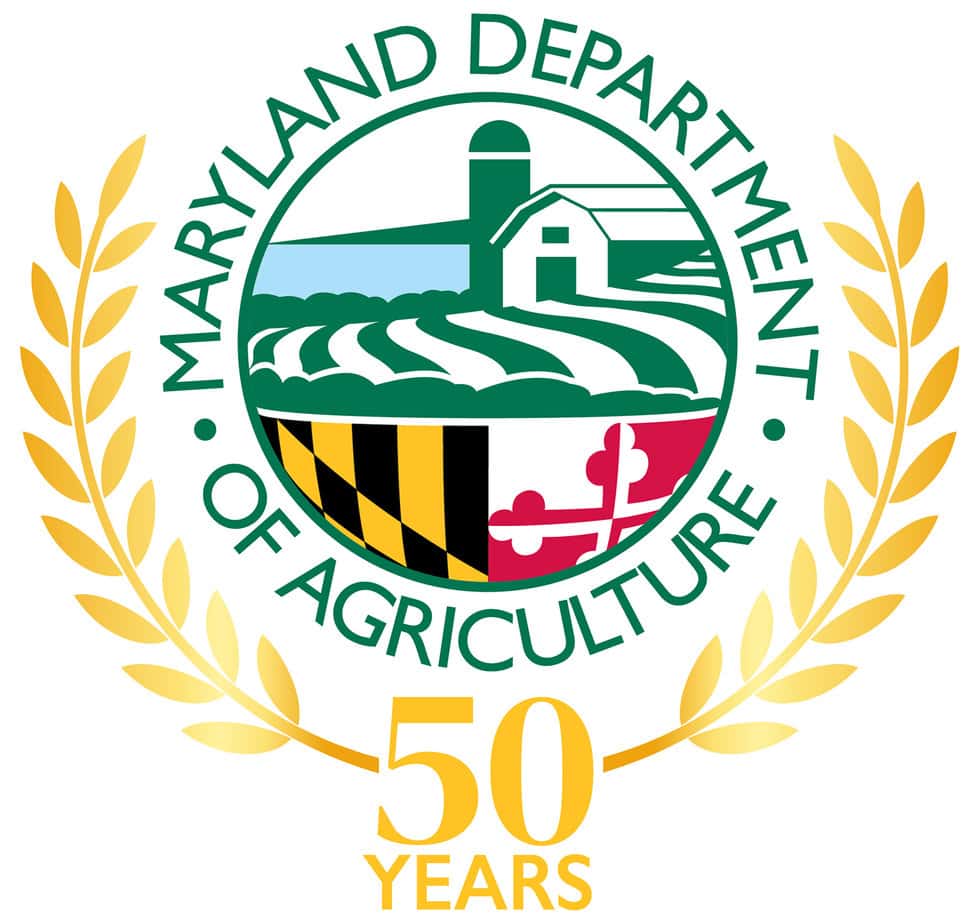
Cybil Preston
Chief Apiary Inspector
State Apiarist
EAS Certified Master Beekeeper
Certified Maryland Honey Judge
Maryland Department of Agriculture
50 Harry S. Truman Parkway
Annapolis, Maryland 21401
cybil.preston@maryland.gov
(410) 841-5920(O)
(410) 562-3464 (M)
Website[Return to February 2024 BeeLine newsletter]
- The Maryland Department of Agriculture sent out the first registration letter to Maryland beekeepers in December, to over 4,000 recipients.
New Location at UMBC What You Need to Know
- UMBC Meeting Location Info: Parking, Vendors, Food!

MSBA will meet for the first time at the University of Maryland Baltimore County (link to directions and also a campus map), and here are details you need to join us onsite! The meeting address is 1000 Hilltop Circle, Baltimore, MD 21250. Parking is free, and there will be signage from the lot to the meeting in the Interdisciplinary Life Sciences Building.
We will also be welcoming the Maryland Honey Company and Whistlepig Woodcraft (invited), as well as offering t-shirts, and coffee/snacks.
Our meeting space is adjacent to the university commons, so we attendees are invited to purchase lunch there or to bring along their preferred meal. (see below)
Our meeting space is super new and features multiple view screens and lots of places for side conversations. UMBC has been the recipient of many recent "best of" awards for its campus offerings.
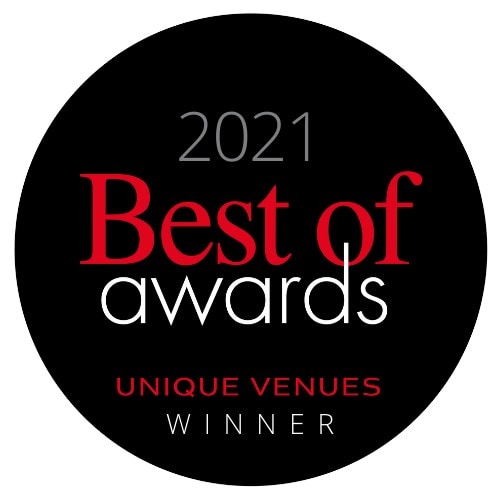

The Maryland Honey Company will be on site: please consider reaching out in advance to the meeting to set up purchases and pickups!
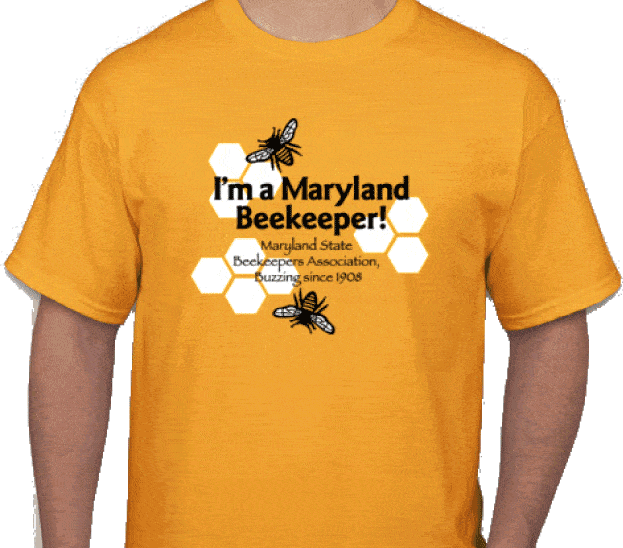
Whistlepig Apiaries, local producers of beekeeping woodenware, has also been invited! You can reach out to John Cullom of Whistlepig before the show at john@whistlepigwoodcraft.com or 443-398-0814.
Long and short sleeved MSBA t-shirts will also be for sale at the meeting.
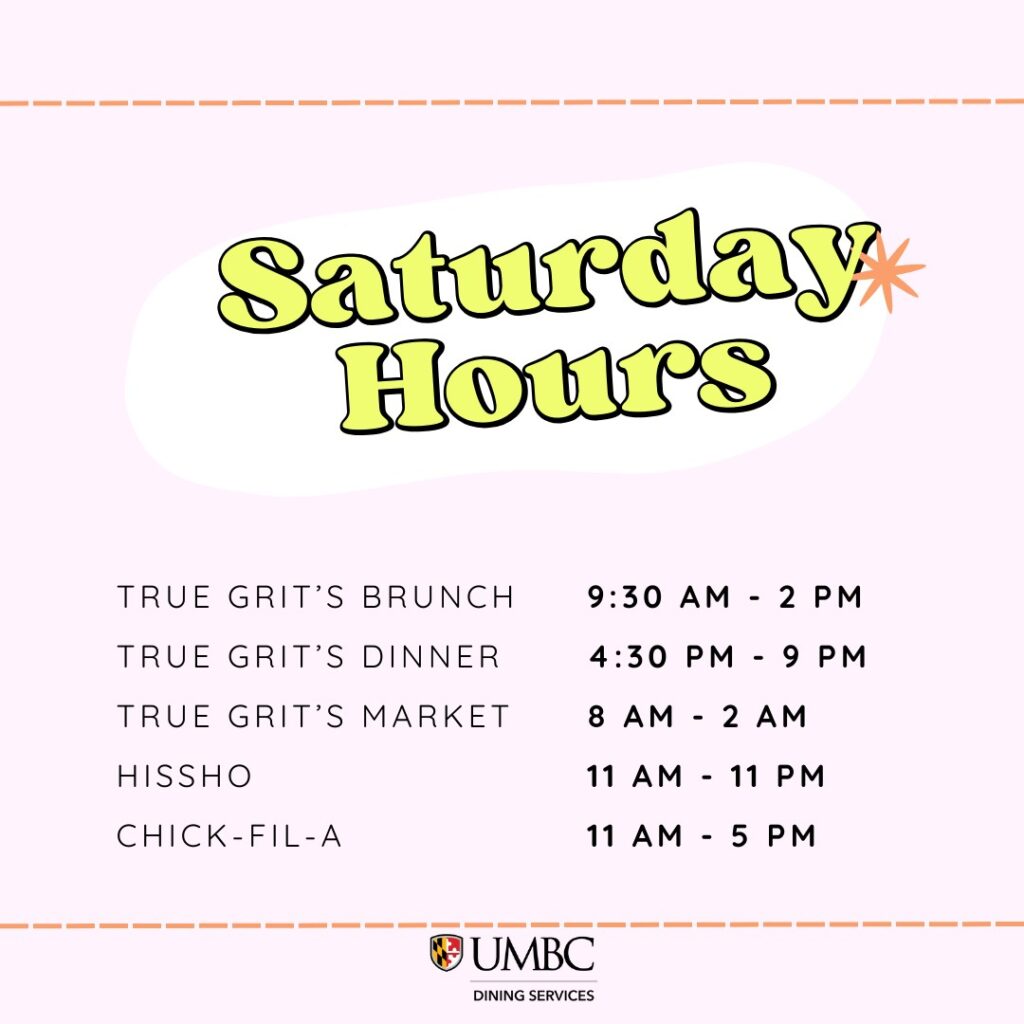
[Return to February 2024 BeeLine newsletter]
EAS 2024 in Maryland: Keynotes Announced
- EAS 2024: Keynotes
Turf Valley Resort, Ellicott City, Maryland, August 5-9, 2024
By David Morris, EAS 2024 President
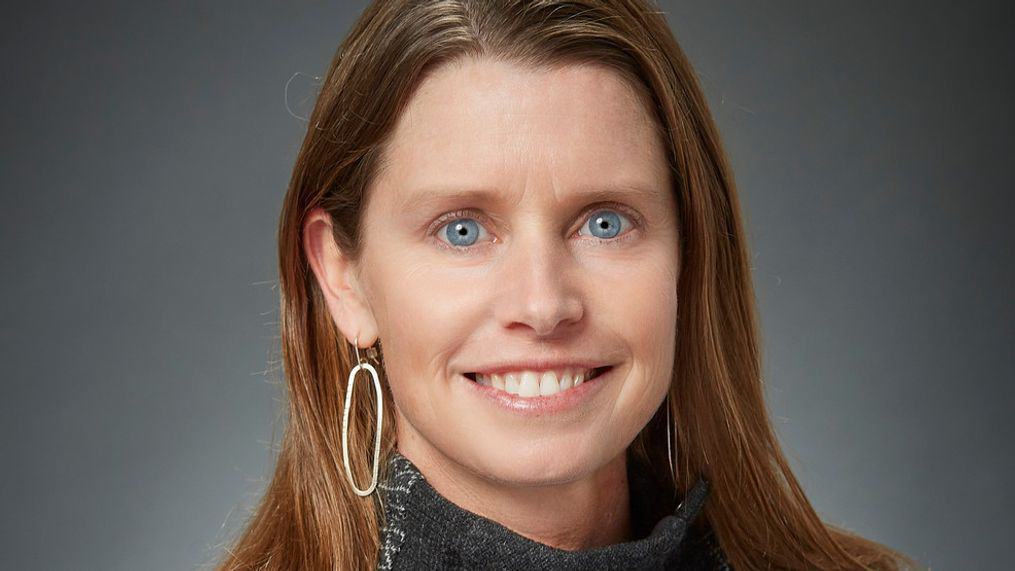
Michelle Flennekin, PhD The Eastern Apicultural Society team is building a terrific program for this year’s conference.
5 days of fun and learning, August 5-9, 2024 at Turf Valley Resort, Maryland. It’s going to be buzzworthy!
There will be two days of short course offerings, and three days with scores of expert presentations, plus hands-on apiary instruction, workshops, and much much more.
We’ll will be sending you more updates as the details come together. We wanted first to share our keynote presentations.
Michelle Flennekin, PhD - “The Impact of Viruses on Honey Bee Health at the Colony, Individual Bee, and Cellular Levels”
Michelle has a microbiology PhD. She runs her own research lab, The Flenniken Lab at Montana State University where she is an Associate Professor of virology, genetics, host-pathogen interactions, and honey bee pathogens. She'll update us on her latest work on how viruses affect bees on the cellular level, individual bee level, and even the whole colony.

Sam Droege, MS Sam Droege, MS – “How Bees Native and Non, Split Up the Plant World for Foraging"
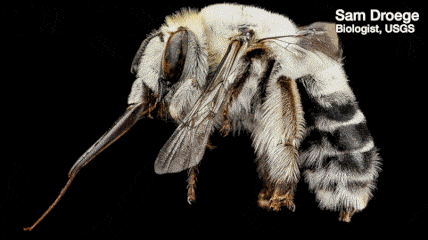
Sam is a wildlife biologist at the Eastern Ecological Science Center, United States Geological Service. Sam studies all kinds of bees and creates astonishing macro photographs of them. He is currently developing a program to inventory and monitor native bees. Check out his identification guides for North American bees at discoverlife.org. Sam will share his insights on how managed honey bees and native pollinators can coexist.
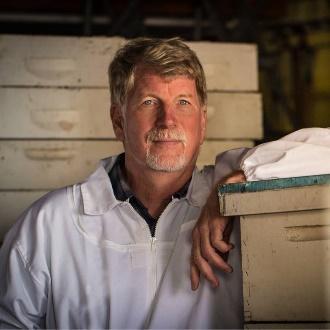
Jeff Pettis, PhD Jeff Pettis, PhD - "Beekeeping in a Changing World"
Jeff, of Pettis and Associates and the current President of Apimondia is an entomologist who specializes in apiculture and honey bee health. As former leader of the USDA-ARS Bee Research Laboratory in Beltsville, MD and now an independent consultant, Jeff has focused on improving colony health by limiting the impact of pests, diseases, and pesticides on honey bees. His keynote will focus on the myriad changes beekeeping faces, including changing honey prices, changing weather patterns, and new pests and diseases.
And that's by far not all that's in the works. Stay tuned to the EAS website for news on the conference and Short Course. easternapiculture.org
Registration will open soon. You can already book lodging at Turf Valley Resort, where the conference will be by clicking here.
Don’t miss this one! Your bees don’t want to see you in August, anyway!
If you know someone who is still just considering joining EAS, and maybe even going to the EAS 2024 Conference in Maryland, have them sign up for for free conference updates here!
And please share this note with the members of your bee community on your club listserv, and so on.
[Return to February 2024 BeeLine newsletter]
Maryland Goes to NAHBE 2024
- Maryland Goes to NAHBE
The Free State makes a strong showing at the North American Honey Bee Expo (NAHBE)
By Michael Mehalick, Second VP for Prince George's County
Many Maryland beekeepers joined 3,000 fellow beekeepers and vendors at the inaugural North American Honey Bee Exposition (NAHBE) in Louisville, Kentucky January 4–6, 2024. The sold-out event featured more than 80 vendors of beekeeping equipment and supplies including the well-known established companies and newer companies that offer products made in the U.S. to meet the growing demand from hobbyist, sideliner, and commercial beekeepers.
Beekeepers from all over the U.S. were joined by participants from Canada, France, the United Kingdom, and Australia. Conference speakers came from all over the U.S., Canada, the United Kingdom, and France.
NAHBE has more of a trade show focus, but also introduced the Next Gen Bee Program to equip the next generation of serious beekeepers with advanced knowledge, networking opportunities, and exciting experiences.
The NAHBE Honey Show attracted 1,161 entries from 339 beekeepers making the show one of the largest held in the United States. The familiar major exhibit categories included honey, beeswax, beverages made with honey, arts and crafts related to beekeeping, and food items made with honey.
Two categories that attracted more entries than usual were Beekeeping Antiquities and Cocktails Made with Honey. Several Maryland beekeepers won ribbons and honorable mentions in the competition.It is expected that the 2nd Annual North American Honey Bee Expo will be held in early January 2025. The details will be posted on the NAHBE web site when finalized.
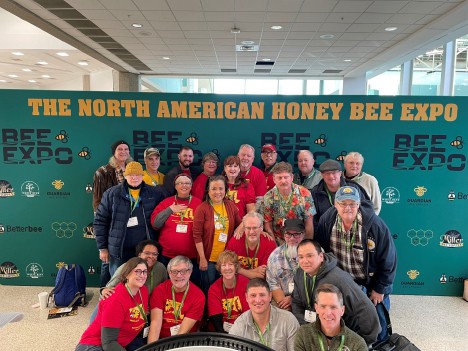
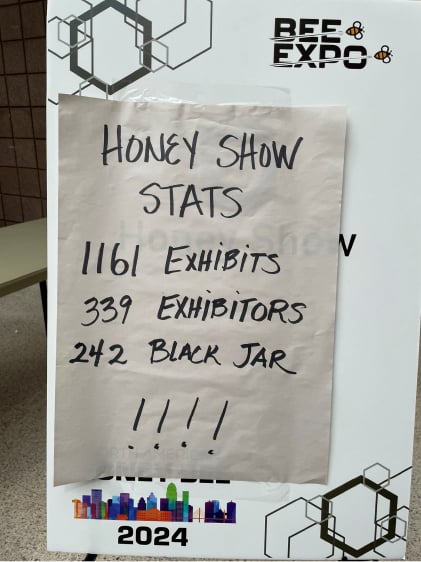
[Return to February 2024 BeeLine newsletter]
Great ABF Meeting in the Big Easy
- Great Meeting in the Big Easy: ABF in New Orleans
The American Beekeeping Federation met in New Orleans January 9-13, 2024
By Lisa Marie Ghezzi, Second VP for Talbot County
For more than 80 years, ABF, the American Beekeeping Federation, has been working in the interest of all beekeepers, large and small, and those associated with the beekeeping industry to ensure the future of the honey bee.
Their annual meeting has been a must for beekeepers at all levels for decades, and this year's meeting. in Louisiana was extremely valuable!
Small-Scale, Sideliner and Commercial beekeepers were all well represented with over 700 attending. Keynote speakers were Dr. Frank D. Rinkevich and Dr. Sammy Ramsey. Dr. Rinkevich, a research Entomologist at the USDA-ARS Honey Bee Breeding, Genetics and Physiology Laboratory in Baton Rouge, LA, spoke about the lessons learned from five years of research on Amitraz resistance in Varroa destructor.
Dr. Ramsey provided an update on his research of the Tropilaelaps, in his Keynote address “A Fate Worse than Varroa”, and with emphasis on understanding the rapid reproductive capacity of the Varroa destructor that catapults its success, and the term “Kleptocytosis”.
Many other talks provided valuable guidance on industry news, best practices and various stages of rearch, including presentations by approximately 70 graduate students and PhD candidates showcasing their findings at the American Bee Research Conference (ABRC) poster sessions. Two groups toured the USDA-ARS Lab Saturday morning.
In addition to an ice cream social appreciated by all Wednesday evening, many attendees attended a relaxing social event at the House of Blues Thursday evening listening to jazz by the Jake Landry Jazz Band. They enjoyed an array of Cajun and Creole food well known in the city.
ABF deployed a new app this year to assist conference goers in locating speakers and topics of interest, as well as making more efficient use of attendees’ time to locate the next talk, assemble spur of the moment get-togethers, share photos and preview speaker presentations. The app also facilitated more communication exchange than ever before; a helpful assist to get more out of action and topic-packed week.
The tradeshow was well attended by vendors, including new the display and discussion of new inventions.
ABF members elected a new President, Vice President and some new board members. Patty Sundberg of Montana and Debbie Seib from Indiana, respectively, bring robust leadership and fresh perspectives to ABF; Sundberg, Seib and the new board demonstrate a deep commitment in support of all members and the organization’s mission.
Next year’s conference will be held in Reno, Nevada January 7-11, 2025. More to follow!
[Return to February 2024 BeeLine newsletter]
“Life in the Hive” is a Model for Bee Education!
- “Life in the Hive” is a Model for Bee Education!
Beekeeper designed and built model vividly and accurately gives a vision inside the cell
By Matt Gagle, MSBA Member
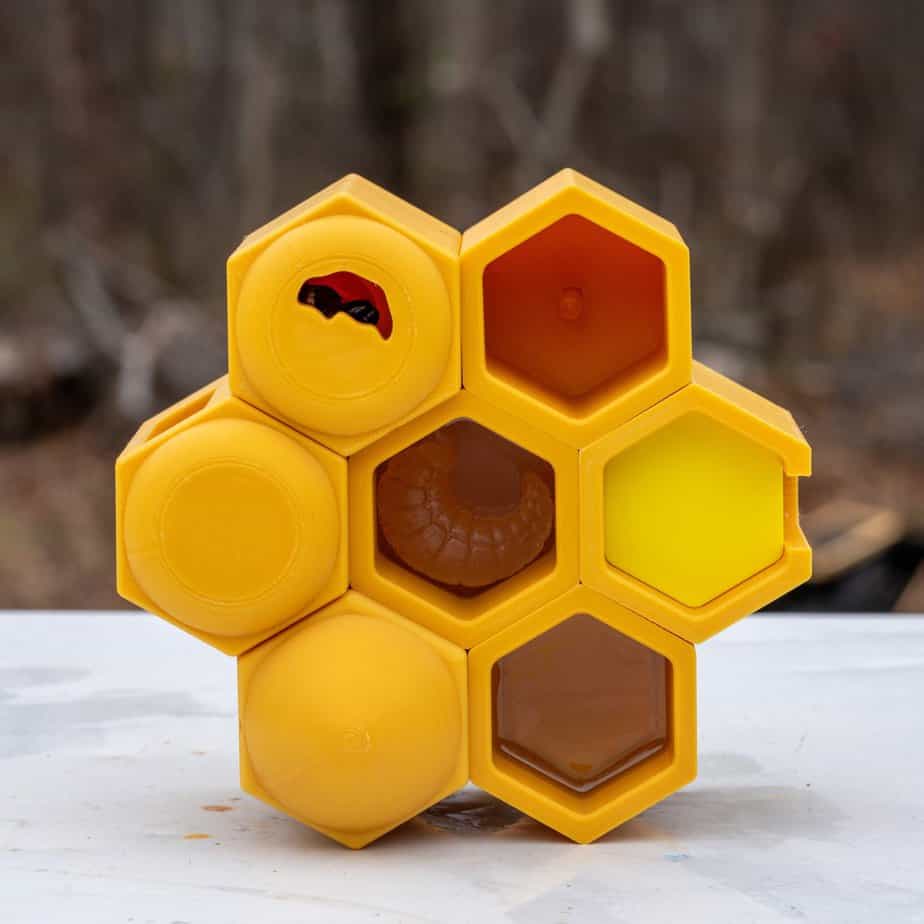
[Editor's Note: We invited Matt to present his super-cool creation after acquiring/working with one. We are proud to have this kind of creativity and skill in our community!]
Life in the Hive is a 3D-printed model showcasing essential parts of a beehive, designed to be accessible for both kids and adults. My journey began in 2022, when I started 3D printing human-scale Varroa mites. The following year, I added a Small Hive Beetle model to the collection and continued brainstorming ideas to educate people about honeybees and their lives.
The inspiration for a new project arrived when someone inquired about creating a model to illustrate the life cycle of a bee. Existing models, although informative, lacked the context of life inside a beehive. My goal was to develop a teaching tool suitable for children, beginner beekeeping courses, and even for display at a farmer's market booth.
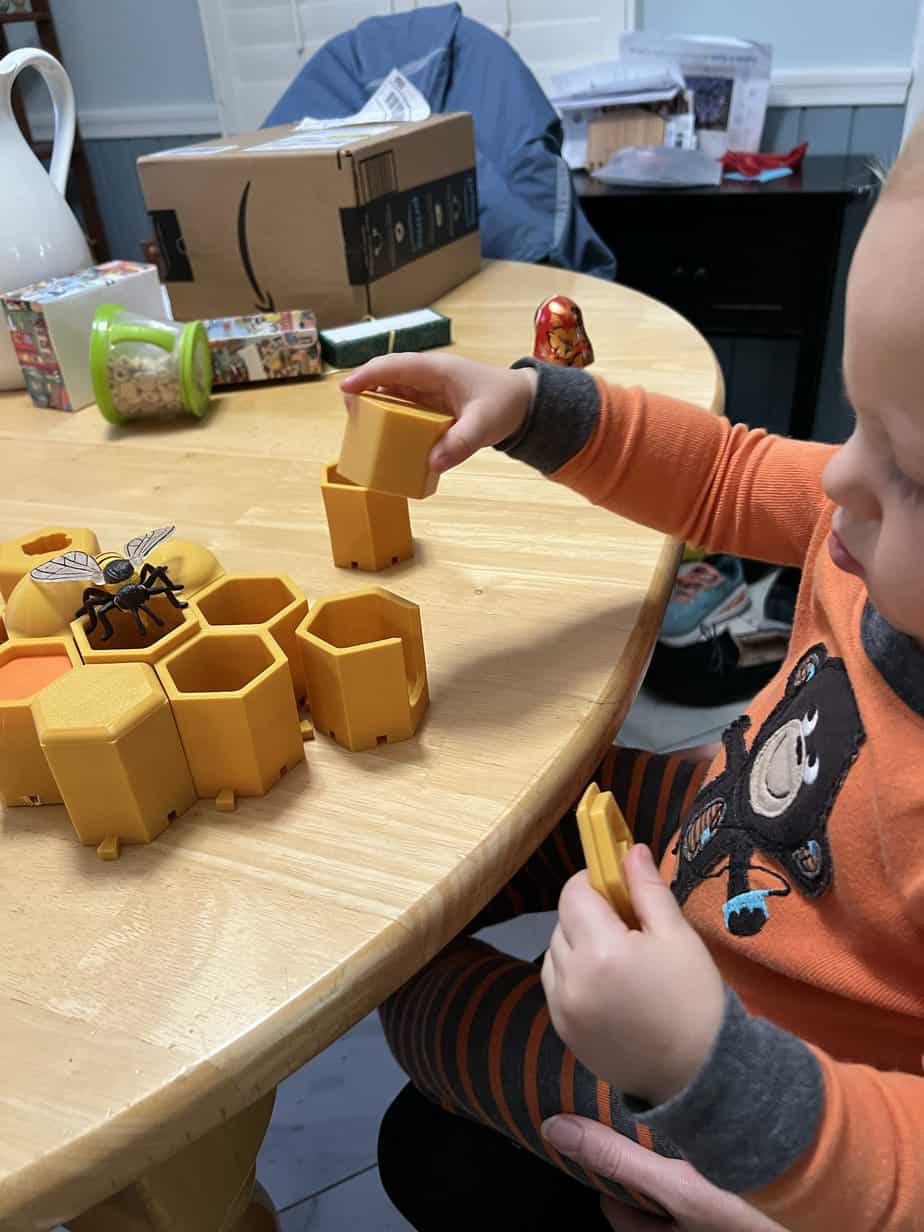
I aimed for a model that was not only visually appealing but also versatile in its arrangement and use. The design process spanned approximately two months, during which I experimented with multiple prototypes, varying in size and connection methods. Initially, I employed a clip system on the bottom of the cells.
However, its durability was put to the test by my 2-year-old son, affectionately nicknamed Quality Control, who demonstrated that the clips were prone to breaking when pulled with force. This experience taught me that if you want something thoroughly tested, a 2-year-old is highly recommended!
Both my wife and another beekeeper suggested the incorporation of magnets. I eventually decided to embed magnets within the cell walls, a feature that has become my favorite aspect of the model due to the ease with which the cells can be rearranged to represent different hive contents.
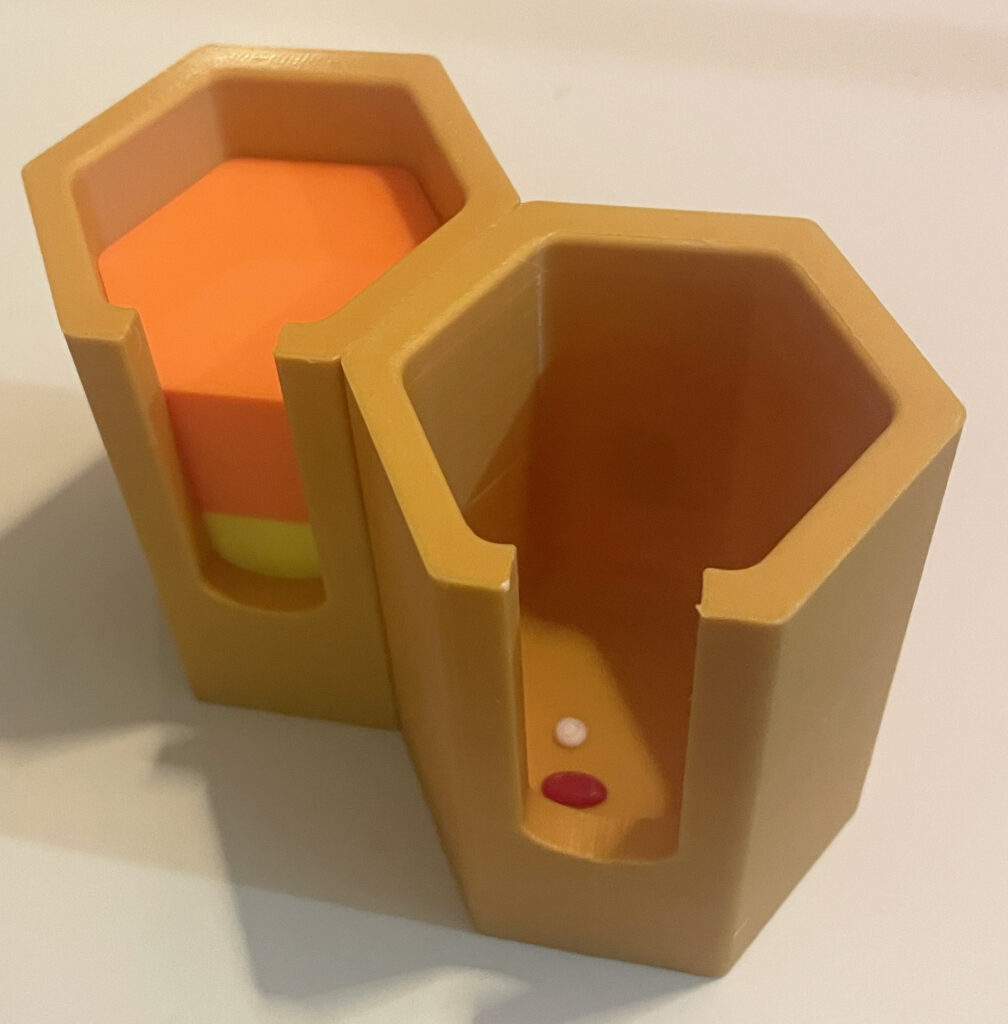
In designing the cells, I prioritized the inclusion of elements beneficial for various educational levels. The core set covers the basic development stages from egg to adult bee. Additionally, I incorporated a honey cell and a pollen cell to demonstrate the bees' diet. Recognizing the importance of pest management in beekeeping, I included a representation of the Varroa mite life cycle within a pupal cell, featuring both a mature mother mite and an immature mite.
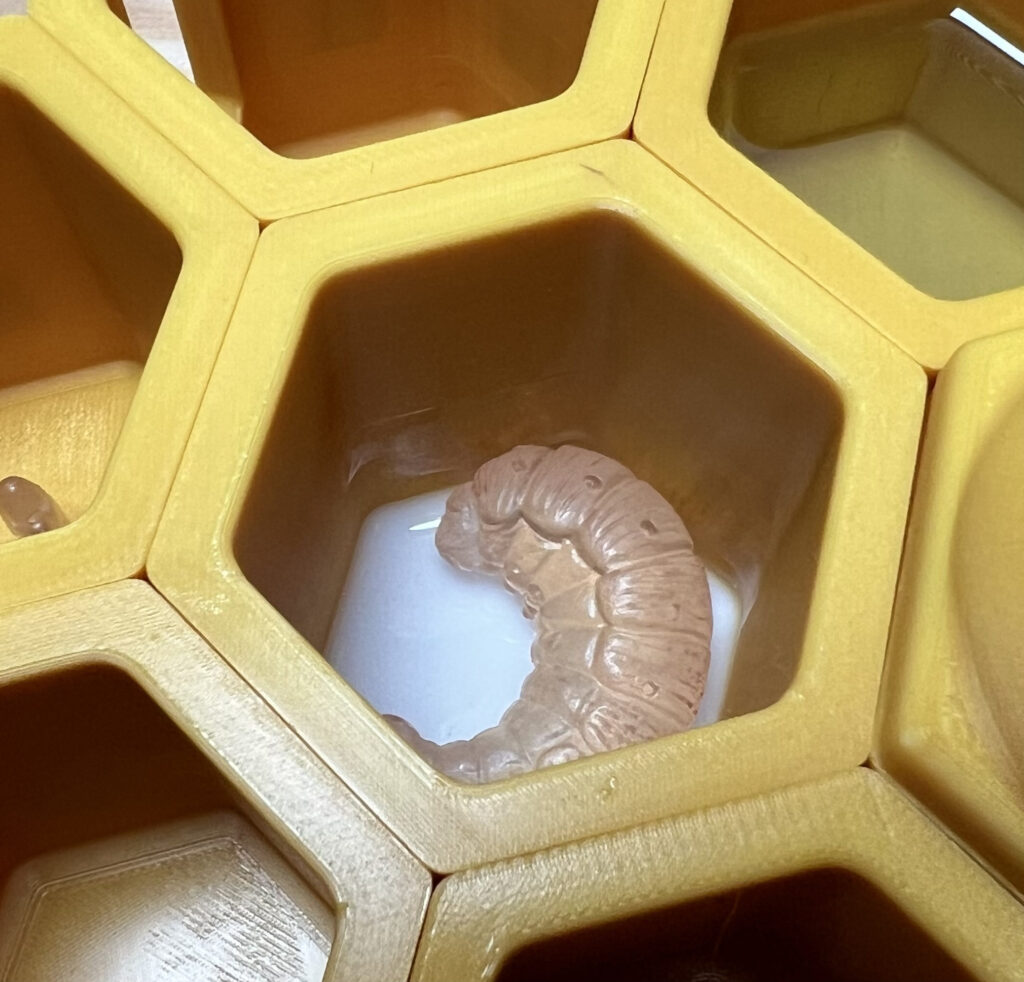
The kit also contains three cells illustrating a covered cell, a cell with a worker bee emerging, and a drone cap. Beyond the core set, I offer queen cells and a package of hive pests, including larvae, small hive beetles, and Varroa mites, as additional accessories. Since its launch in December of 2023, the set has travelled all over the United States and the world. It has been used to educate teachers in Alabama and new beekeepers in Canada, is available for check out in a library in Ohio, is on display at farmers markets in Florida and California, and is teaching the public about honeybees in New Zealand.
The core set and accessories are available on my Etsy shop at https://apertureapiary.etsy.com or on my website at https://aperturehoney.com.
[Return to February 2024 BeeLine newsletter]
Quick Background on Maryland Senate Bill 278
Beekeeper's Gallery, Winter 2023-2024
- Beekeeper’s Gallery, Winter 2024
Wanted: your beekeeping-themed photos and artwork!
Have you taken a beekeeping photo or created a pollinator image that the world should see? Share it here!
Each of these contributors gets credit and owns all rights to their images!
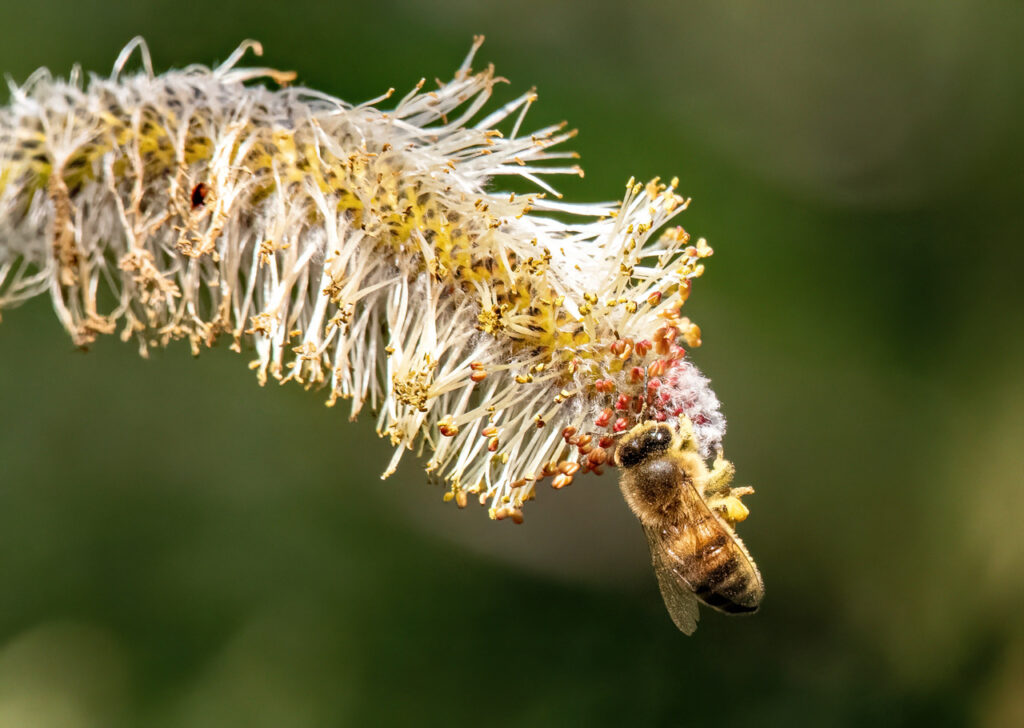
Honey Bee on Pussy Willow from Jane Gamble 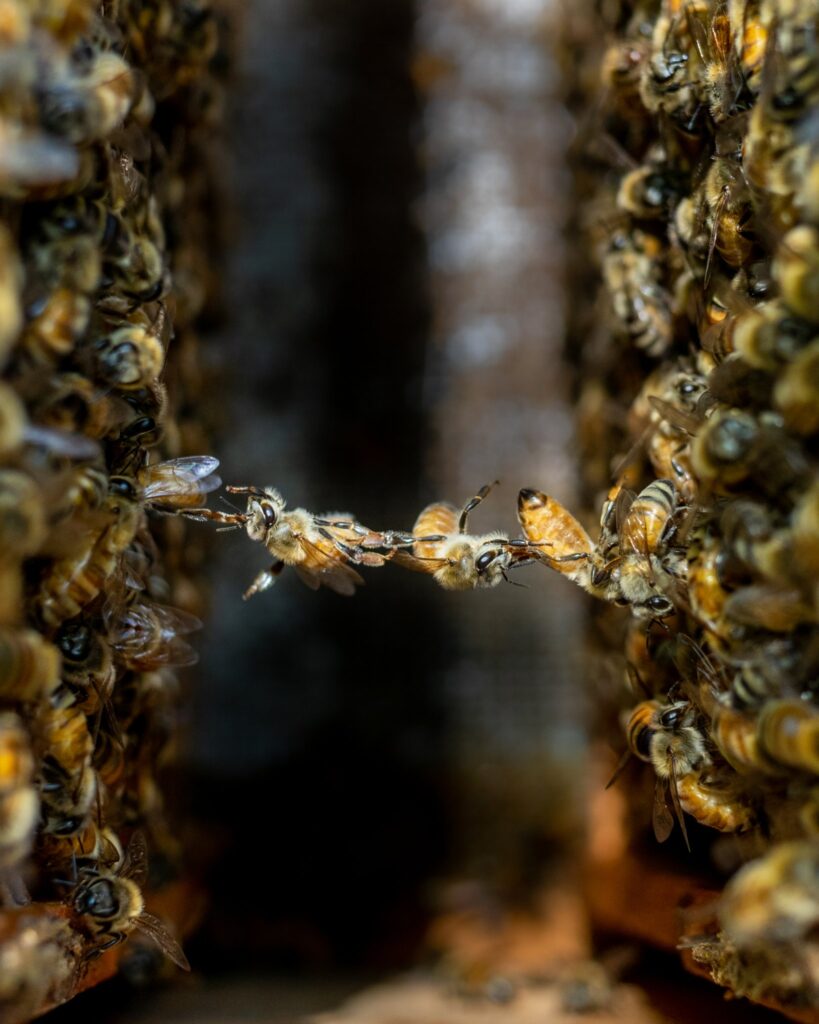
Festooning, from Erik Darm 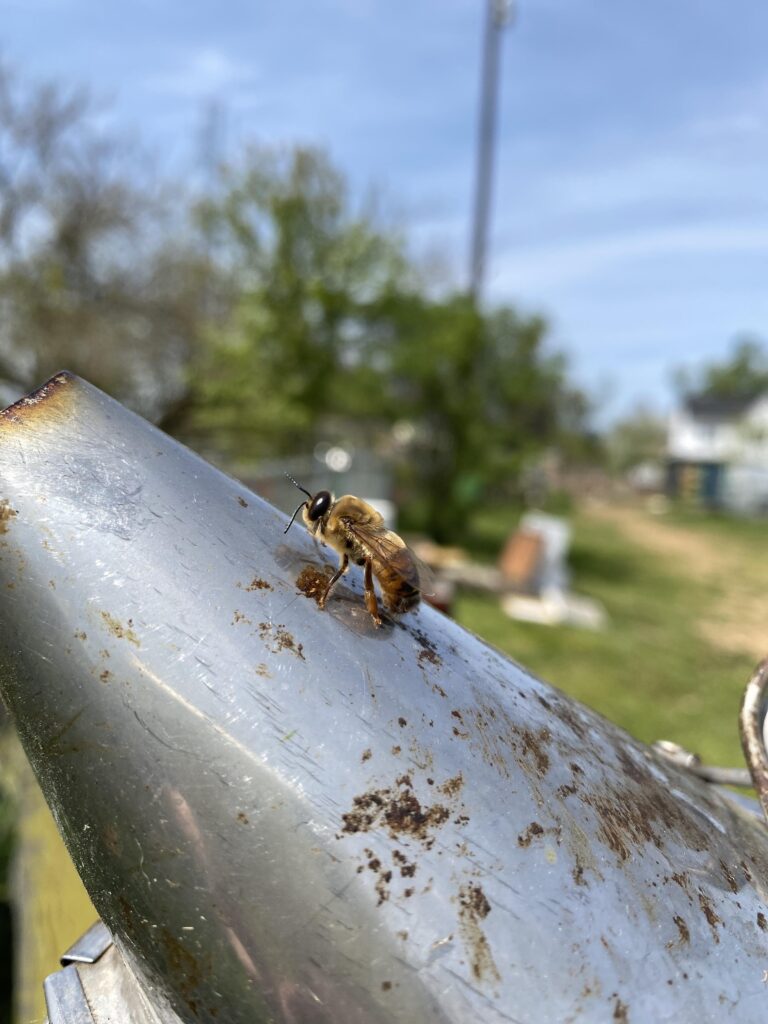
A smoky drone from Laurel Kelly 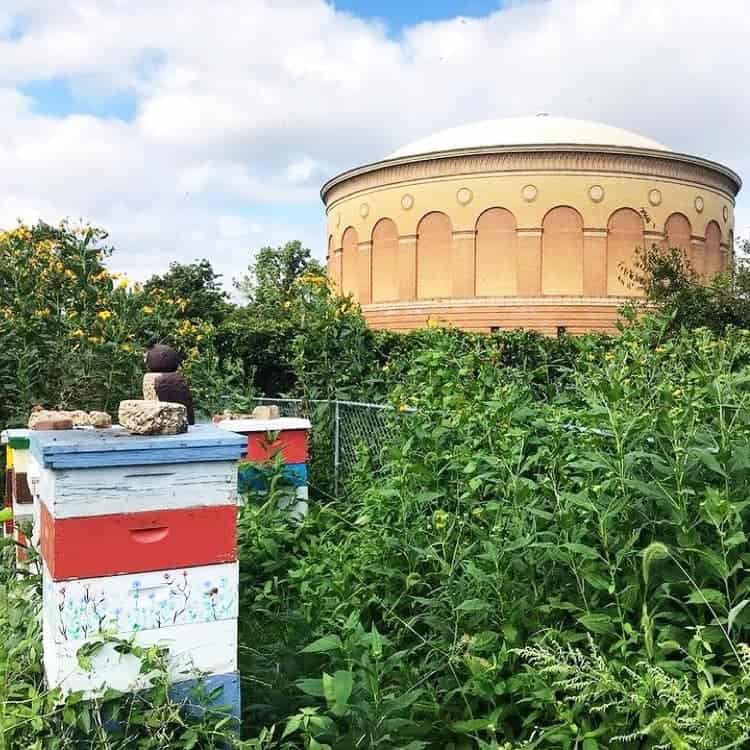
Charles DeBarber's favorite view of the Filbert Street Garden 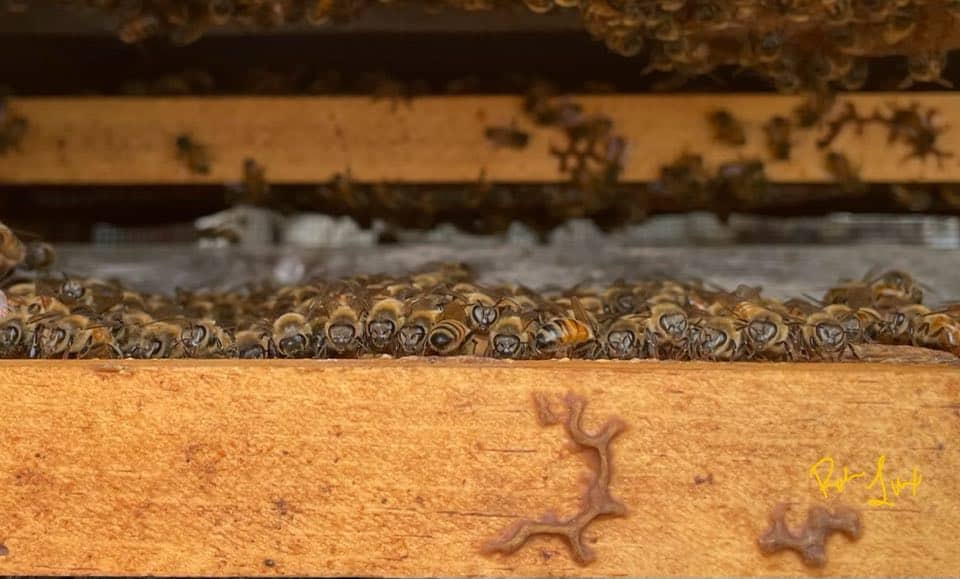
From Rawbin Heintz Luxenburg 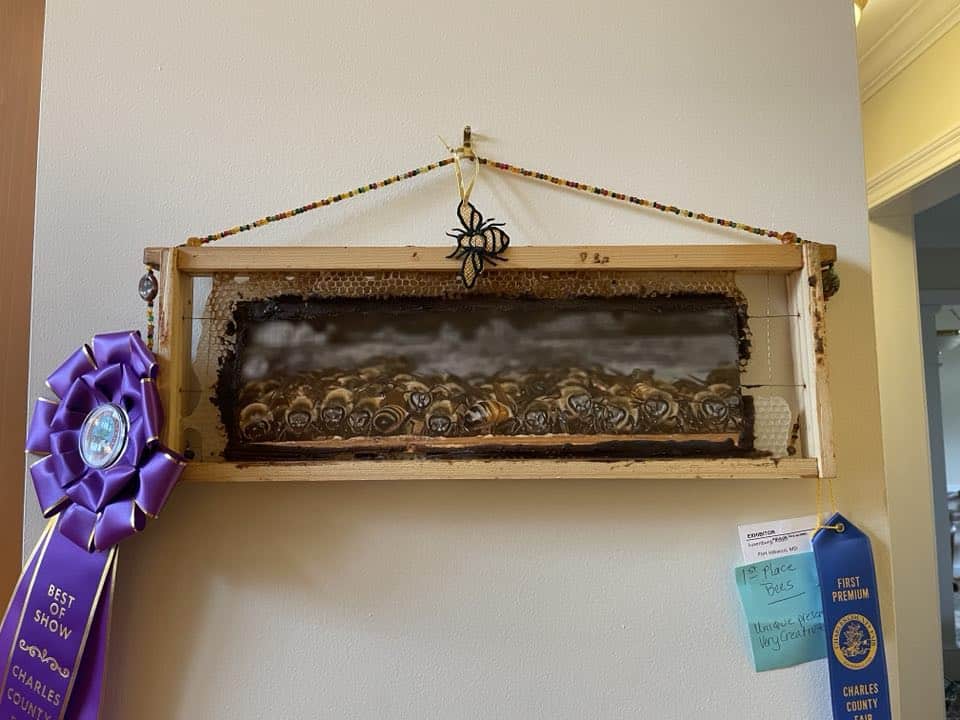
...and how she won the prize with it! 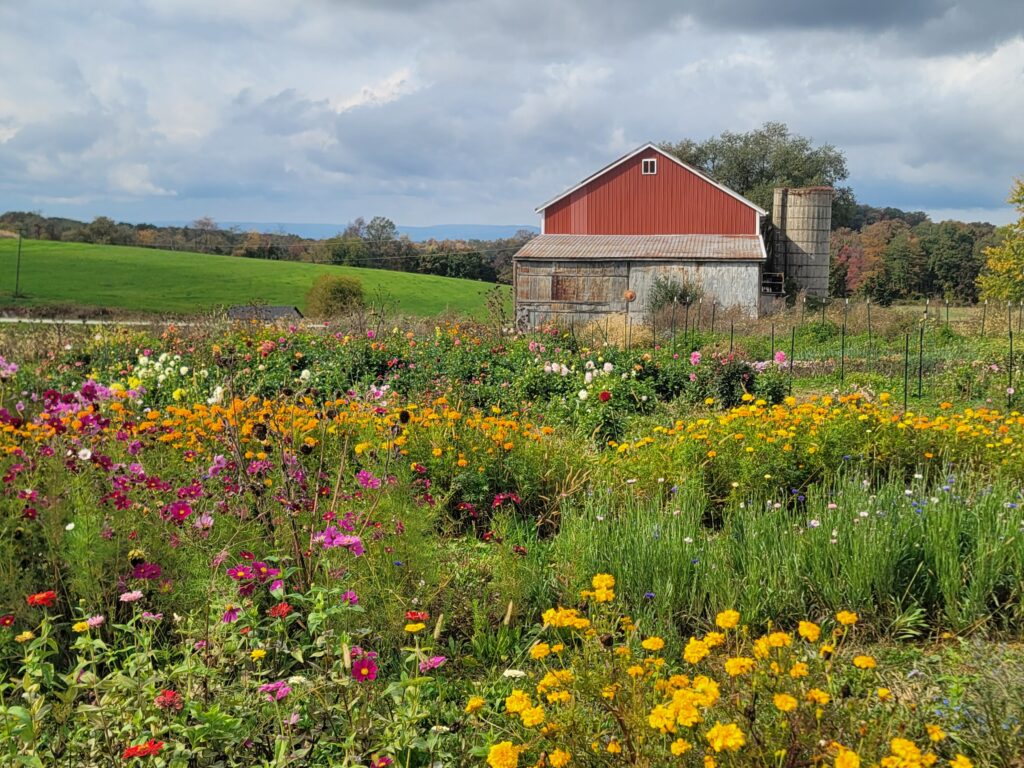
From Monica Schmitt of Mission Beelieve 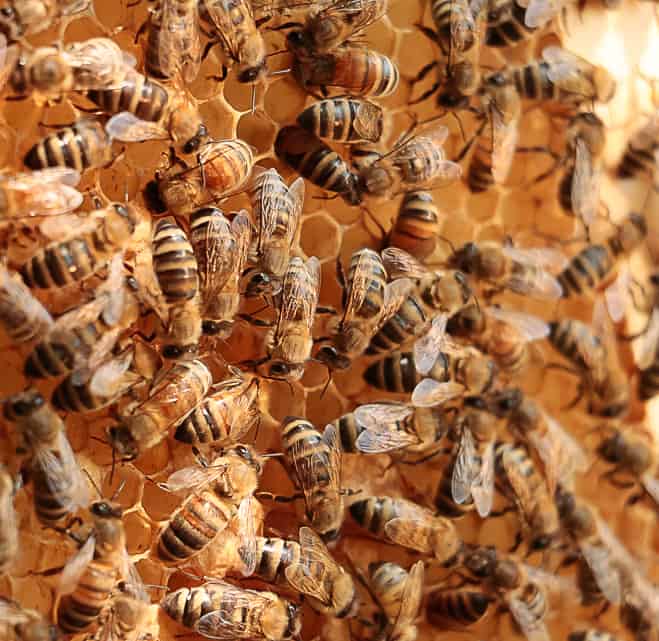
BEES! by Cassandra Hetherington 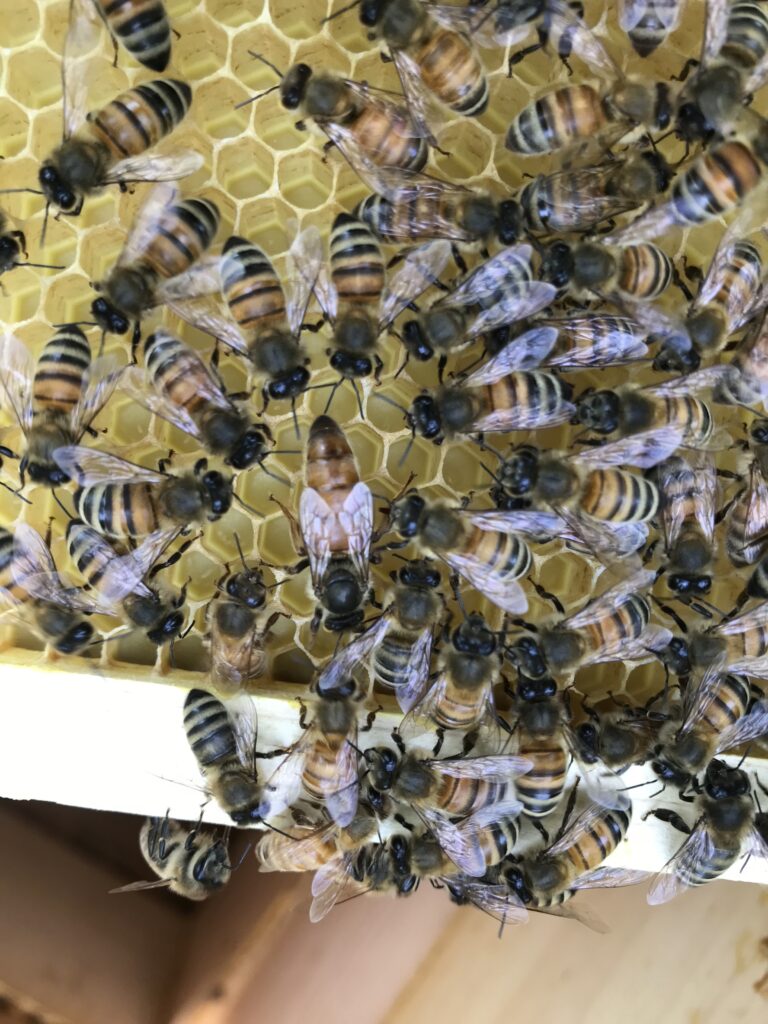
Dark Queen, by Judy Treible 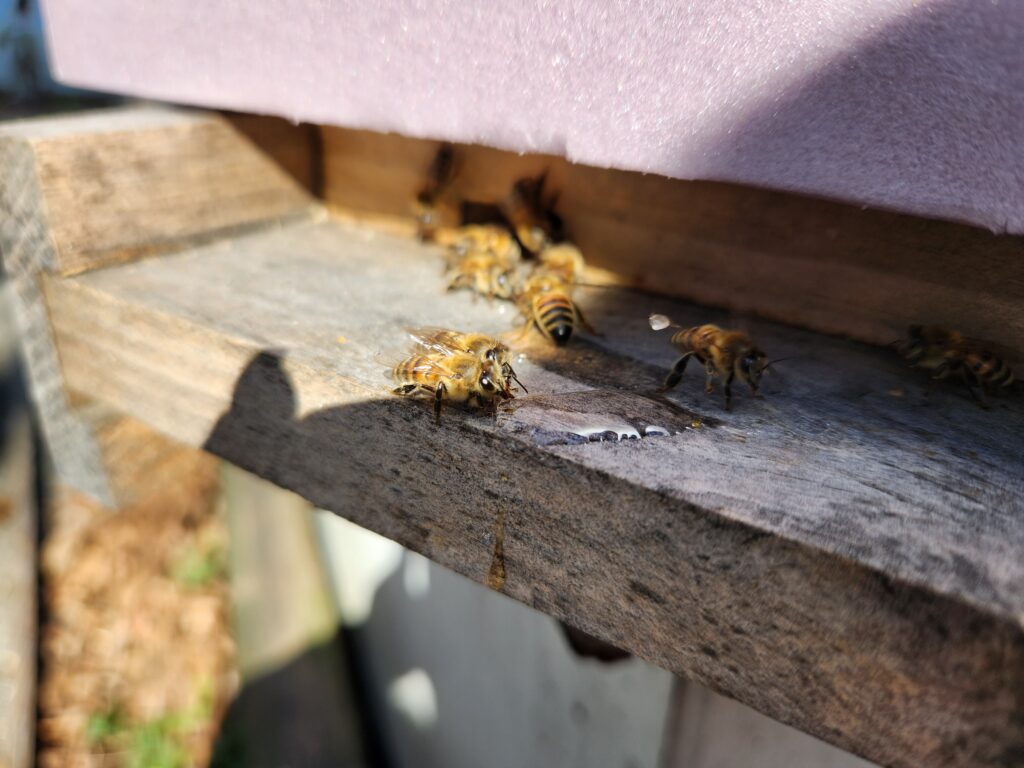
Sipping on the porch, photo by Nicole Yakas 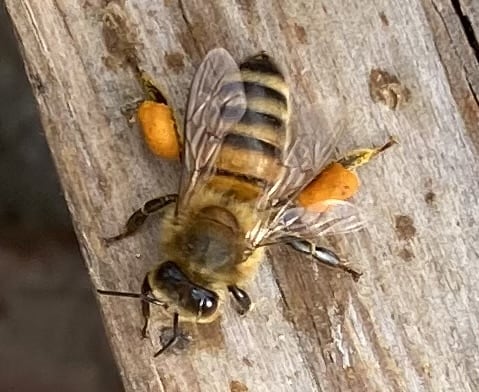
Pollen Pockets by Phillip Heller 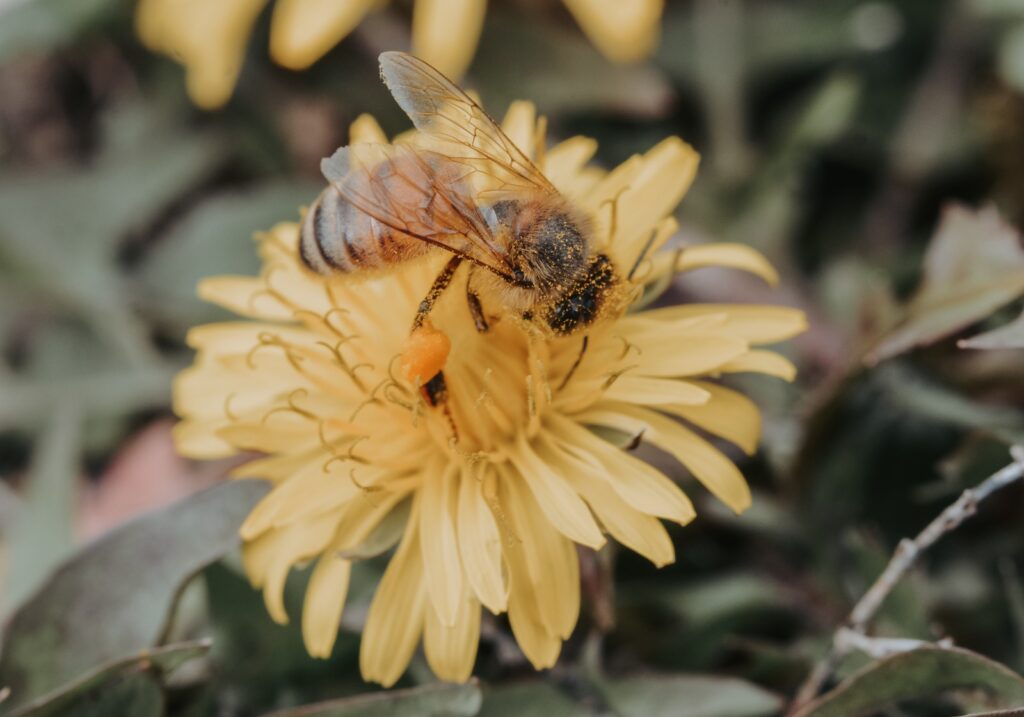
Another gorgeous forager shot from Stephanie Liller 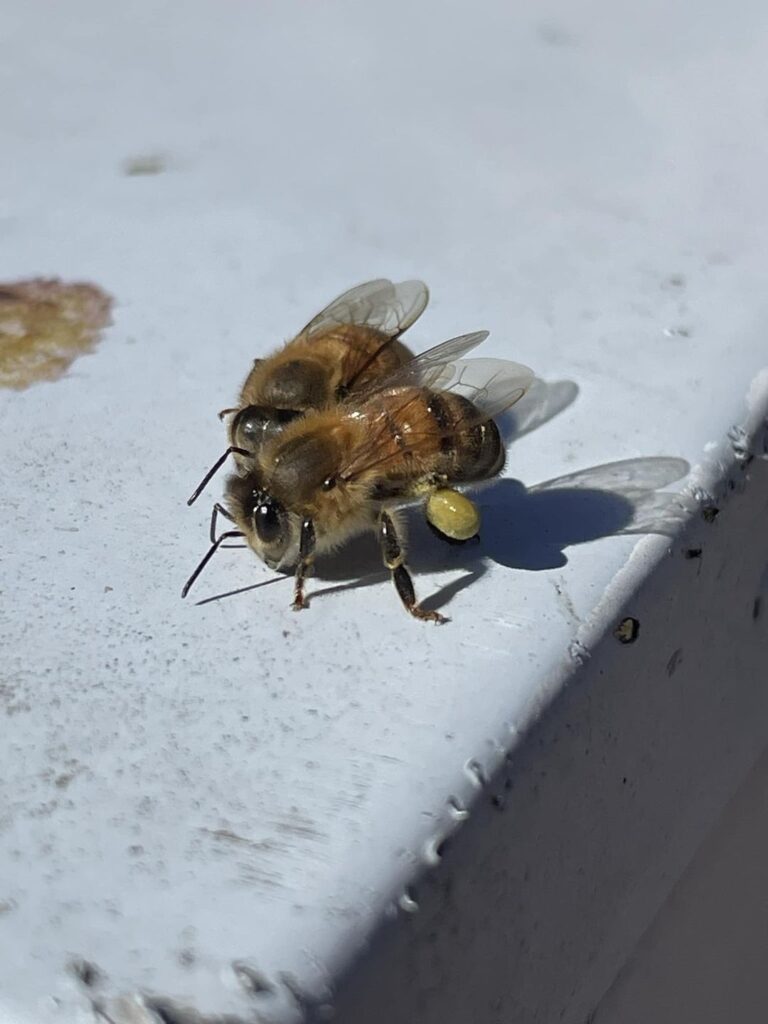
By Jan Day: Pollen collected February 4, 2024 
Look at those corbicula! Photo by Steve Bell 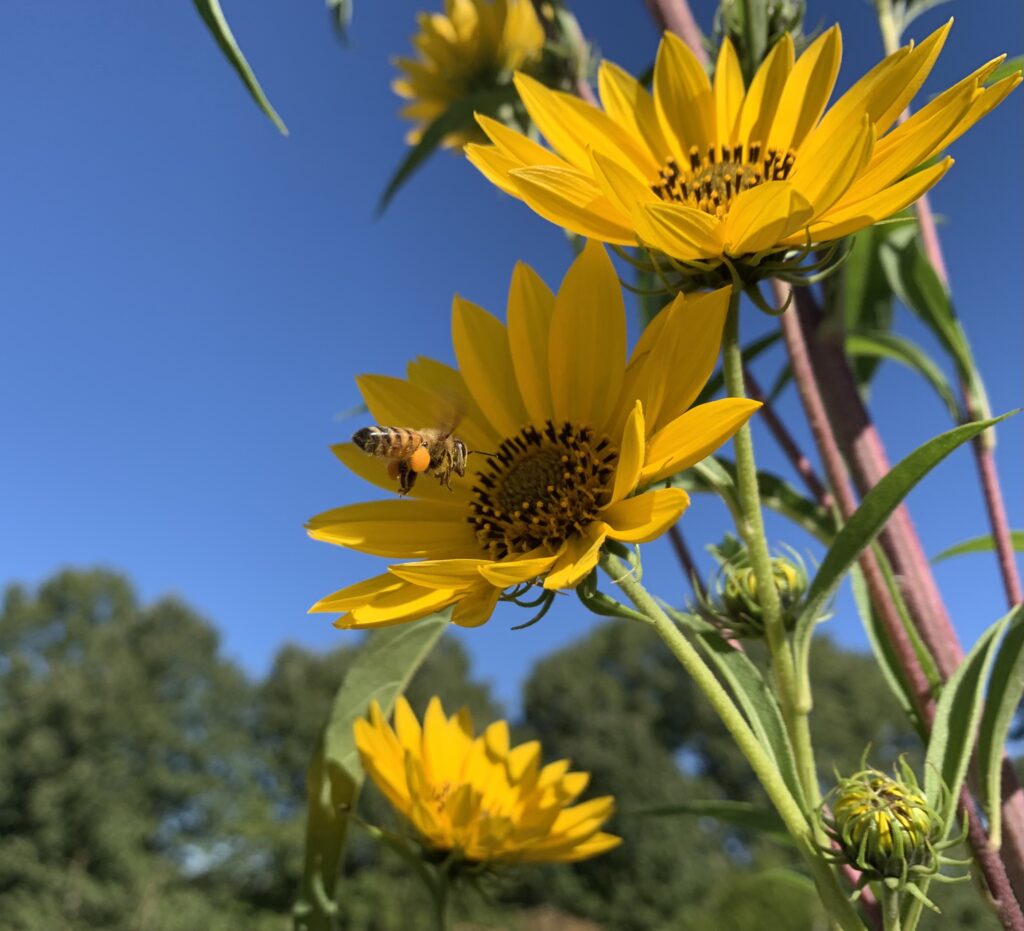
"Coming in loaded" from Melinda Hudson 
An early forager from James Harrison 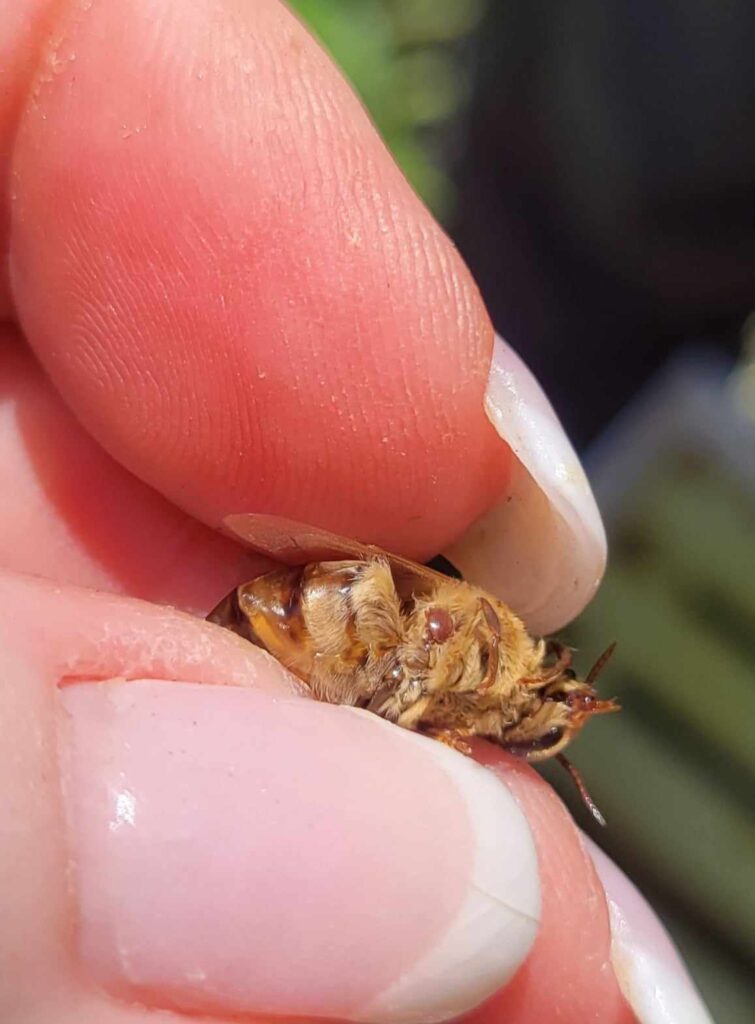
From Diane Wellons, varroa on worker 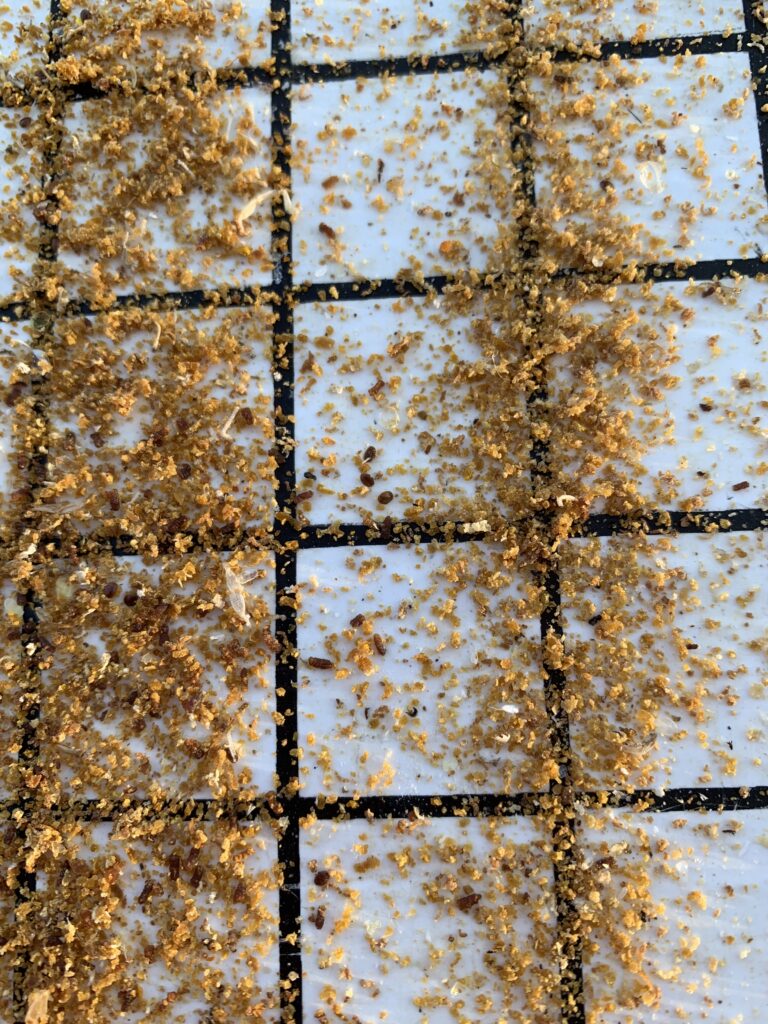
After an OAV treatment, by Melinda Hudson 
From Liz Baker, a beautiful macro pic of proboscis 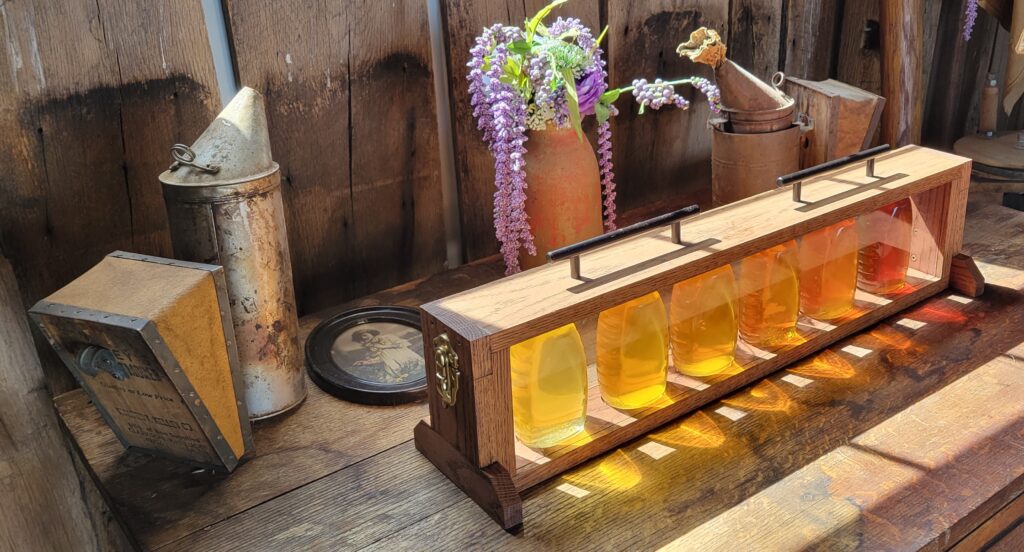
A rainbow display of honey from John Cullom of Whistlepig Woodcraft 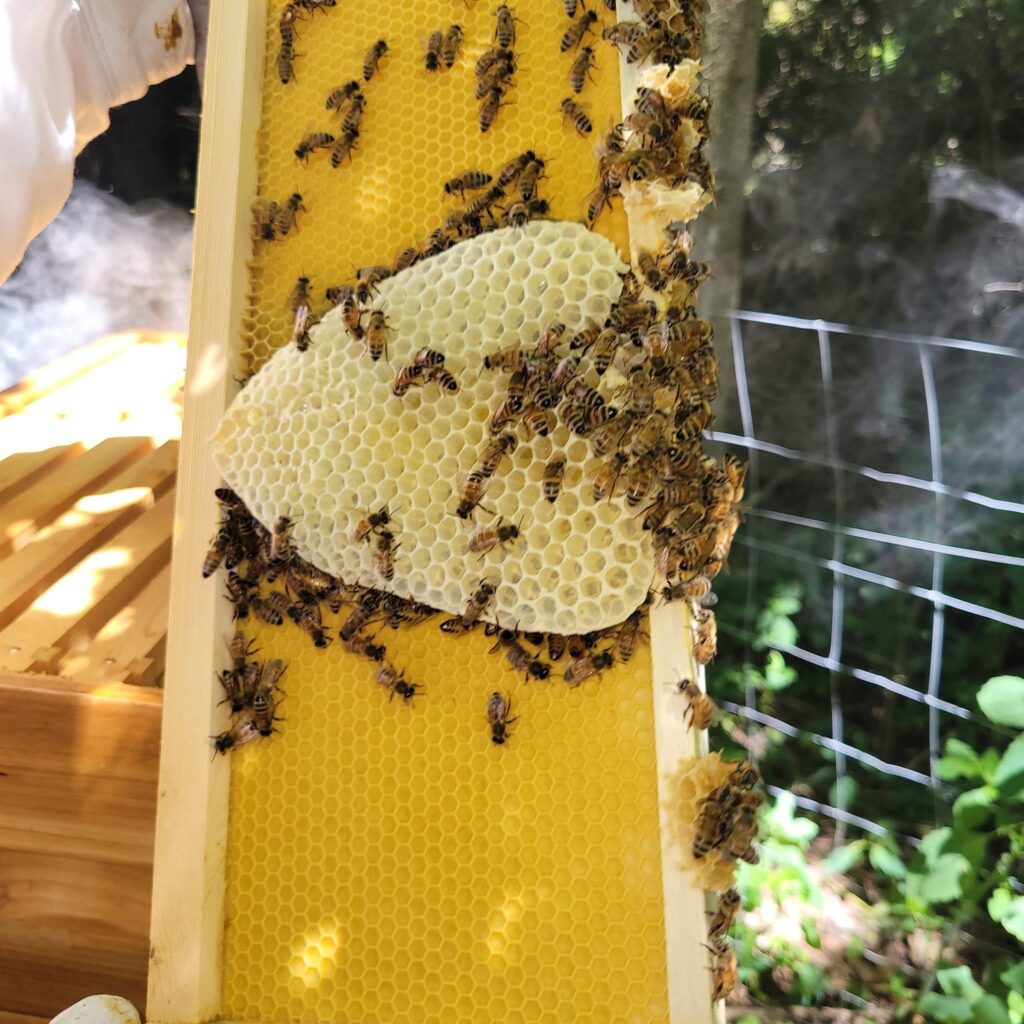
Burr comb, from Paul of Sale Barn Road Farms 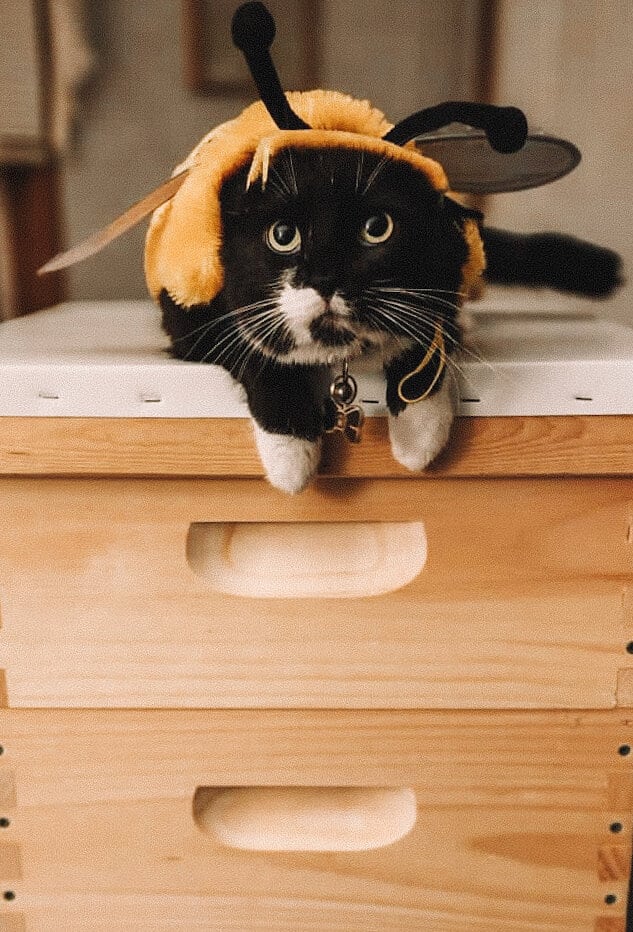
A purrfect ending, bu Stephanie Liller [Return to February 2024 BeeLine newsletter]
Winter Meeting 2024 Information
- 2024 February 10 MEETING
DAY: Saturday, Febuary 10, 2024
TIME: 8:30 am - 4:00 pm
WHERE: BOTH In-Person and via ZOOM. (HYBRID)
In-Person Location: University of Maryland, Baltimore County, Interdisciplinary Life Sciences Building (ILSB), 1000 Hilltop Cir, Baltimore, MD 21250
LEARN - TONS! Insulating Hives, Pollen, Breeding, Drones, Yellow Legged Hornets & More
SPEAKERS - Bill Hesbach, Garett Slater, Cybil Preston, & MORE
You are not logged in. Please login TO VIEW THE RECORDING. Thanks!
2024 February 10 Meeting SCHEDULE
WHEN WHAT WHO 8:30 AM Refreshments, Coffee, Donuts, etc. 9:00 AM Opening and Welcome Mary Laura Fitzgerald, President 9:15 AM Why Vaccinate Your Bees for AFB? Nathan Reid of Dalan Animal Health, EAS Master Beekeeper 9:30 AM Genomic Breeding Dr. Garett Slater, USDA and University of Minnesota VIA ZOOM 10:30AM Pollen Bill Hesbach, of Wing Dance Apiaries, EAS Master Beekeeper 11:30 AM Yellow Legged Hornets: The Georgia Experience Christopher Adams of the Georgia Department of Agriculture VIA ZOOM 12 Noon EAS 2024 in Maryland: Updates and Announcements David Morris, former MSBA President, EAS Master Beekeeper, President EAS 2024 12:15 PM Lunch Bring your own or visit UMBC Commons (next door) 1:00 PM Maryland Apiary Inspector's Report Cybil Preston, MD State Inspector 1:30 PM Thermoregulation and Ventilation Bill Hesbach, of Wing Dance Apiaries, EAS Master Beekeeper 2:30 PM My Drone Research Dr. Garett Slater, USDA and University of Minnesota VIA ZOOM 3:30 PM Adjourn Mary Laura Fitzgerald, President DOOR PRIZE!
A copy of "Hive Tour:
The Insider's Guide to Honey Bees"
will be awarded in the morning!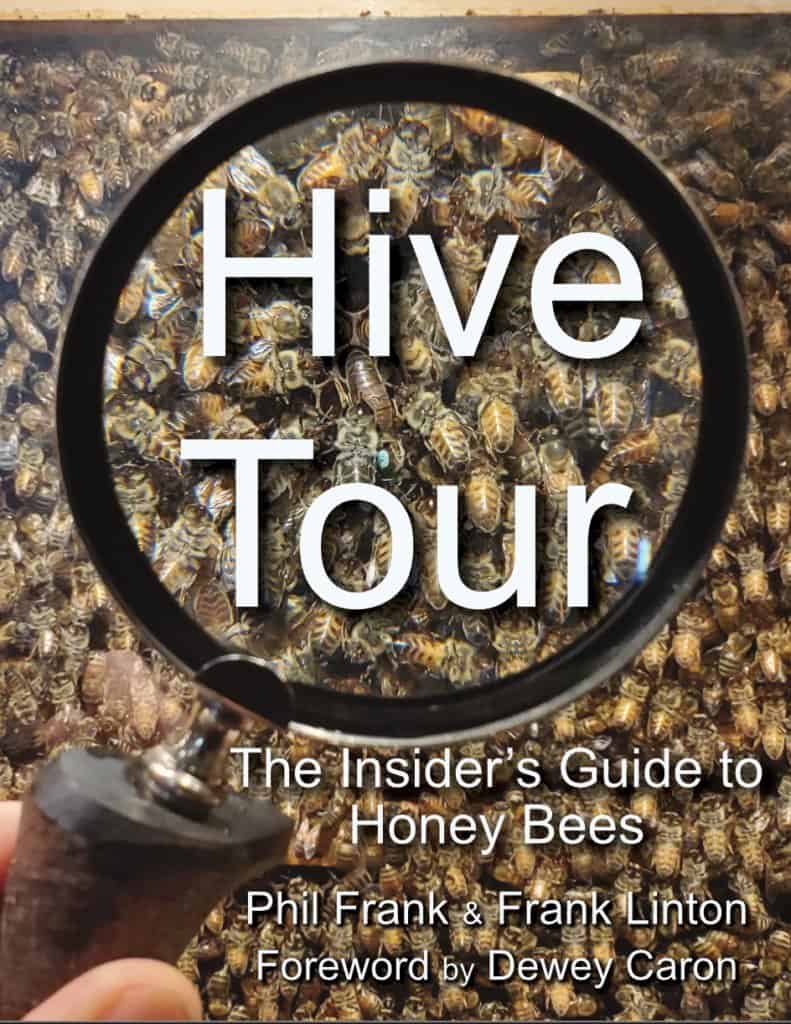
Bill Hesbach's Two Talks
Thermoregulation and Ventilation
The talk starts with how bees control the internal hive temperature during winter using thermoregulation and what effect that has on the colony. Then, we discuss convection flows inside a colony as a precursor to understanding ventilation. In the final segment, I introduce the concept of a condensing colony versus the more common practice of adding winter ventilation. Participants will better understand the roles that thermoregulation and ventilation play in a natural hive environment.
Pollen
Pollen, the miraculous germ cell of plants and the primary protein nutrient for bees, is the fertility key to every flowering plant and tree in the world. In this talk, we discuss how bees transfer pollen during pollination and how it’s digested as a protein source. Illustrated by striking photos, it’s a visual journey that will inform participants in ways that increase the joy of observing pollen on native plants, on the hind legs of bees, and stored as bee bread in cells.
Bill's Bio
Bill Hesbach is a Connecticut native with a background in engineering.
He's an Eastern Apicultural Society Certified Master Beekeeper, a graduate of the University of Montana's master beekeeping program, and the President of the Connecticut Beekeepers Association.
Bill also operates a sideline bee business called Wing Dance Apiary in Cheshire, CT., producing artisanal raw honey and other natural hive products.Bill teaches bee biology and various beekeeping methods at meetings hosted by regional beekeeping clubs. Bill is an active member of the Eastern Apicultural Society, where he is part of the Master Beekeeper Certification program. Bill is a regular guest speaker at national beekeeping seminars and was presented with the Distinguished Speaker Award at the 2019 EAS conference.
His special interests in beekeeping include bee biology, flight, and the connection between local flora and bee behavior. He's a published author, and his articles on beekeeping appear in The American Bee Journal and Bee Culture magazines.
Bill's book "Splits and Varroa" is available from Northern Bee Books HERE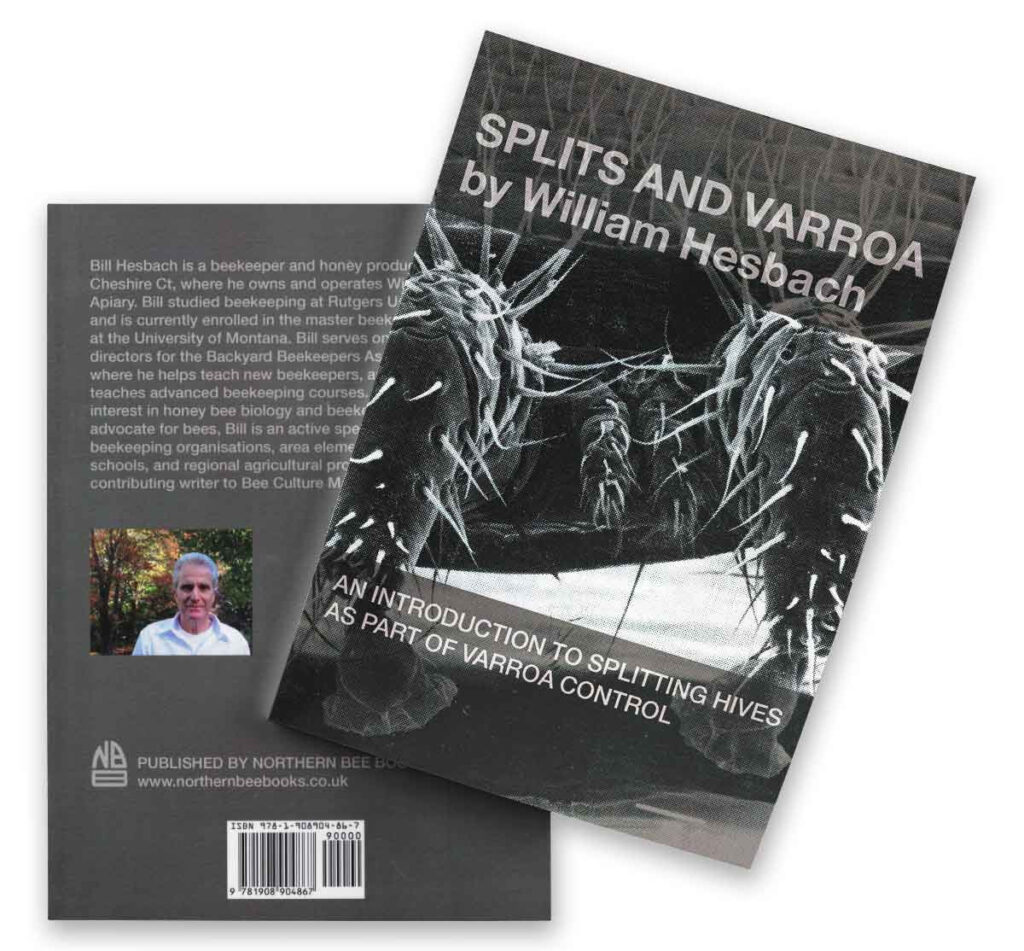
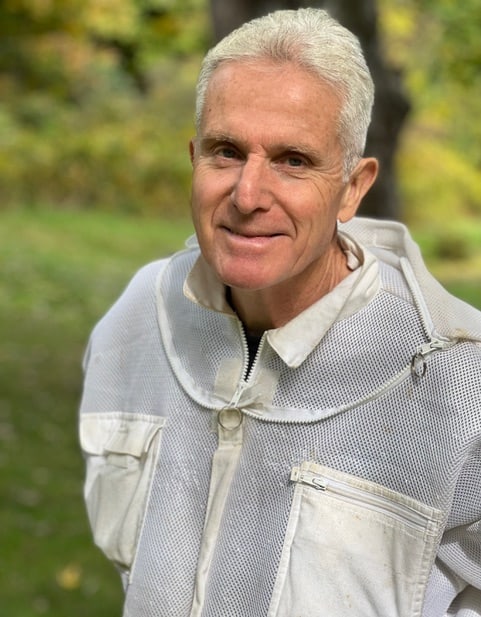
Garett Slater's Two Talks
Genomic Breeding
The field of genomics has experienced groundbreaking advancements in livestock breeding, revolutionizing trait selection and enhancement for various animal species. In sectors like cattle, pigs, and poultry, genomics has accelerated breeding programs by precisely identifying genetic markers linked to desirable traits. This knowledge enables breeders to make well-informed decisions, resulting in more focused and efficient strategies. These advancements have significantly improved livestock productivity, disease resistance, and other crucial characteristics. However, while genomics has shown great success in other agricultural contexts, its integration into honey bee breeding programs remains somewhat limited. Despite honey bees' critical role in pollination and ecosystem health, there is potential for expanding and developing genomics-driven breeding strategies. In this talk, I discuss strategies to implement genomics into breeding.
My Drone Research
Among the largest threats to colony health is queen failure. Shockingly, as many as 50% of commercial queens fail within 6 months. Beekeeper production relies on high quality queens, so queen failure is of deep importance to beekeepers and researchers alike. While much energy has focused on queen aspects of failure, we are increasingly discovering that drones play a more important role in queen quality than originally expected. Of drones which are sexually mature, as few as one in ten may be able to produce enough sperm to successfully inseminate a queen. If drones are not producing healthy sperm, their mates will not produce healthy colonies. Despite this, we have very little understanding of precisely why drone reproductive quality is low. In this talk, I will discuss drone biology, causes of poor drones, and what beekeepers can do to mitigate poor drone quality
Garett's Bio
Garett Slater is a Postdoctoral Fellow for the USDA. He obtained his PhD from Purdue University in 2022, with a thesis focused on applying modern genetic tools to honey bee breeding. Previously, he completed a MS in Nutrition and Queen Quality at North Dakota State University. Garett’s current research focuses on developing genomic tools for beekeeping, including selecting for natural defenses towards Varroa, pathogens, and other diseases. He has worked as a scientist and technician with the Bee Informed Partnership at the University of Minnesota for two years, directly supporting 30 commercial beekeepers in North Dakota. Garett has 12 years of beekeeping experience, including 8 years working for a large commercial beekeeper in North Dakota.
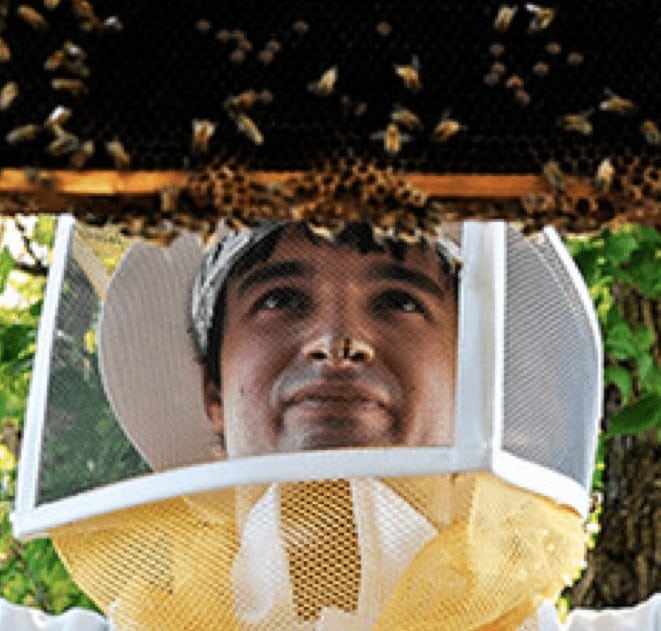
YELLOW LEGGED HORNET
The Georgia Department of Agriculture will give MSBA a private update on Vespa velutina - the Yellow-Legged Hornet (Formerly call the "Asian Hornet")
The first confirmed detection of a live Yellow-Legged Hornet was August 2023 Savannah, Georgia. The yellow-legged hornet poses a threat to honey bees and other pollinators.
Join our meeting to learn the latest. And if YOU spot one, HERE is where to report it.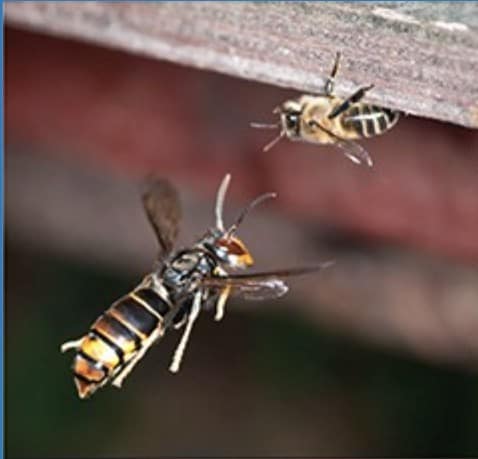
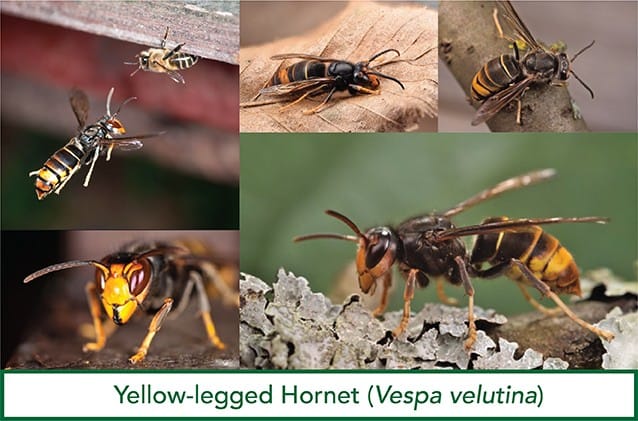
QUIZ: Can you identify which abdomen belongs to the Yellow-Legged Hornet??
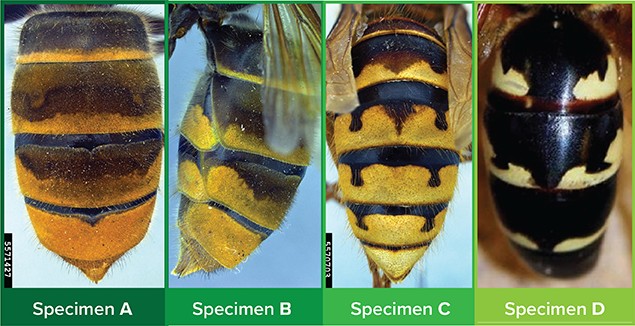
ZOOM DETAILS
Join Zoom Meeting
https://us06web.zoom.us/j/3634766759?pwd=Vm9SSWFnS0ZKRWlKdWc0YnVrQi83Zz09&omn=89929178562+1 301 715 8592 US (Washington DC)
Meeting ID: 363 476 6759
Passcode: 119523One tap mobile
+13017158592,,3634766759#,,,,119523# US (Washington DC) +13092053325,,3634766759#,,,,119523# USFind your local number: https://us06web.zoom.us/u/kdEiSulivW

